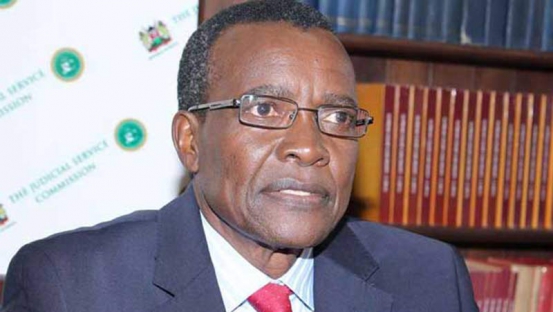×
The Standard e-Paper
Fearless, Trusted News

“In obedience to God’s Command and Will, and guided by the Constitution, to serve humanity, and Kenyans in particular, with dedication, honesty and integrity, striving at all times to uphold the rule of law and do justice to all.”
This was David Maraga’s objective when he presented his CV before the Judicial Service Commission interview panel a year ago for the post of Chief Justice and President of the Supreme Court, which he now holds.